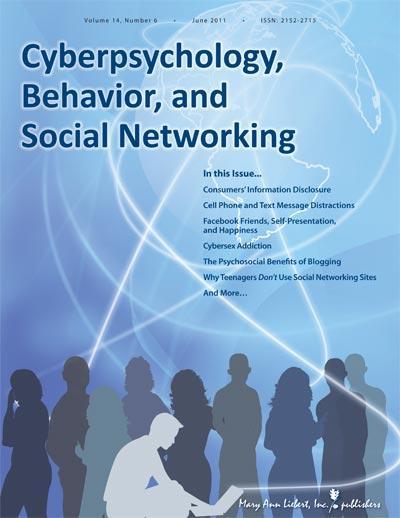New Rochelle, NY, June 27, 2011—The nature of cell phone communication between a parent and adolescent child can affect the quality of their relationship, and much depends on who initiates the call and the purpose and tone of the conversation, according to an illuminating study reported online in Cyberpsychology, Behavior, and Social Networking, a peer-reviewed journal published by Mary Ann Liebert, Inc. (www.liebertpub.com). The article is available free online at http://www.liebertpub.com/cyber
Robert Weisskirch, MSW, PhD, California State University, Monterey Bay (Seaside, CA) notes that parents can use a cell phone to extend their parenting reach: to monitor an adolescent's whereabouts and activities, track their schoolwork, offer support, voice disapproval or criticism, or discipline their teen, for example. Similarly, adolescents may use their cell phones to communicate positive or negative feelings or information with their parents.

Cyberpsychology, Behavior, and Social Networking is an authoritative peer-reviewed journal published monthly in print and online that explores the psychological and social issues surrounding the Internet and interactive technologies.
(Photo Credit: © Mary Ann Liebert Inc., publishers)
In the current study, "No Crossed Wires: Cell Phone Communication in Parent-Adolescent Relationships," Weisskirch proposed seven specific hypotheses about how the frequency, nature, and content of parent-adolescent cell phone calls relate to the quality of the parent-child relationship in terms of self-esteem, perceptions of family conflict, and family dynamics, including closeness and support.